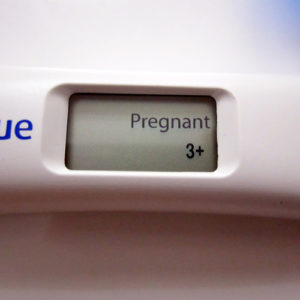Ever heard of the term endometriosis? It’s one of those conditions that millions of women are fighting across the world, yet many others haven’t got a clue about. Let’s dive in and unravel the mystery ourselves.
Think of it like this: Your body acts like a naughty child who doesn’t listen. In endometriosis, the tissue that normally lines your womb just decided to go on an adventure and camp outside, where it is not supposed to. It’s kinda like when you find your socks in the fridge—it just ain’t right!
This wanderer tissue may appear anywhere—in the area around any of the structures from whence it came, that is, your bladder, bowel, ovaries, and fallopian tubes. Untreated, it can cause some serious long-term health problems.
Estimates are that around 10% of women of reproductive age have endometriosis. But here’s the thing: in women with infertility or chronic pain, that number skyrockets to 30-50%. It’s not only a physical fight, either; it can affect mental and social well-being.
What’s Behind this Renegade Tissue?
Now, you would think with all our medical advancements, we would have nailed this. Nope! The exact cause of endometriosis remains unknown; it’s like working a Rubik’s cube blindfolded—frustratingly impossible.
While some theories exist, the most popular one traces it back to an imbalance in a person’s immune system. Think of your immune system as like an overzealous bouncer at a club, letting the wrong kinds of people in and causing a ruckus.
Sadly, there’s no magic pill that would just make endometriosis go poof. Kind of a deal with ‘managing the symptoms.’ Speaking of symptoms, though, one of the most heartbreaking would have to be infertility. Yep, you read it right—endometriosis could be behind up to 50 percent of cases of infertility in women struggling with infertility.
Could You Have Endometriosis?
Now, don’t go self-diagnosing just yet! Symptoms of endometriosis can be pretty sneaky and often masquerade as other conditions. But here are some red flags to look out for:
- Periods from hell: We’re talking pain that makes you want to curl up in a ball and hibernate.
- The flood: When your periods are heavier than Niagara Falls, soaking through clothes or requiring a tampon change every hour, take note.
- Belly aches: Not your everyday cramps; on the contrary, persistent abdominal pains.
- Ouch during intimacy: Pain after sex isn’t normal, folks!
- Fatigue: You feel you ran a marathon when you hardly left the couch?
- Fertility struggles: Not being able to conceive might be an indication.
The kicker? Some women go undiagnosed for years. It takes some women even up to seven years to get the proper diagnosis. That is longer than it takes to get a medical degree—crazy, right?
If you’re reading through these and nodding at any of these symptoms, it’s time to have a chat with your gynaecologist. You shouldn’t have to go seven years; your body deserves better!
Why the Long Wait for Diagnosis?
You might wonder, “Why on earth does diagnosis take so long?” Well, it is kind of like searching for Waldo in red and white stripes because the symptoms are vague, while at times intervening with other conditions when people finally present with symptoms, leaving doctors quite perplexed.
First off, let’s get real—most of us have been socialised to believe that a little period pain is just part of being a girl. We bite the bullet, take a painkiller, and move on. The thing is, though, really bad period pain isn’t normal. It doesn’t mean one is strong or experienced; rather, it’s the body waving a red flag, telling us, “Hey! Something ain’t right here!”
Taking Action
So, what’s in your hands? First of all, listen to your body. If anything doesn’t feel right, it probably isn’t. Keep a symptom diary where the times of pain onset, its intensity, and other symptoms you are feeling can be logged. This information is gold to your doctor.
Be confident, and if your GP brushes off your concerns, be prepared not to hesitate to get a second opinion. You know your body like the back of your hand. Trust your instincts and keep pushing until you get answers.
Finally, don’t suffer in silence. Call support groups, talk to friends. You will be surprised at the number of women who face problems like you. There’s strength in numbers; sometimes knowing you’re not alone can help enormously.
Endometriosis may be a tough nut to crack, but it need not rule your life if you are a little aware of it, diagnose it at an early stage, and get the right kind of treatment. You’ve got this, warrior!
Photo credit; “Endometriosis and Fertility” by Anthony Cunningham for Zoom Baby
Zoom Baby is a leading supplier of Pregnancy Tests and Ovulation Test Kits





